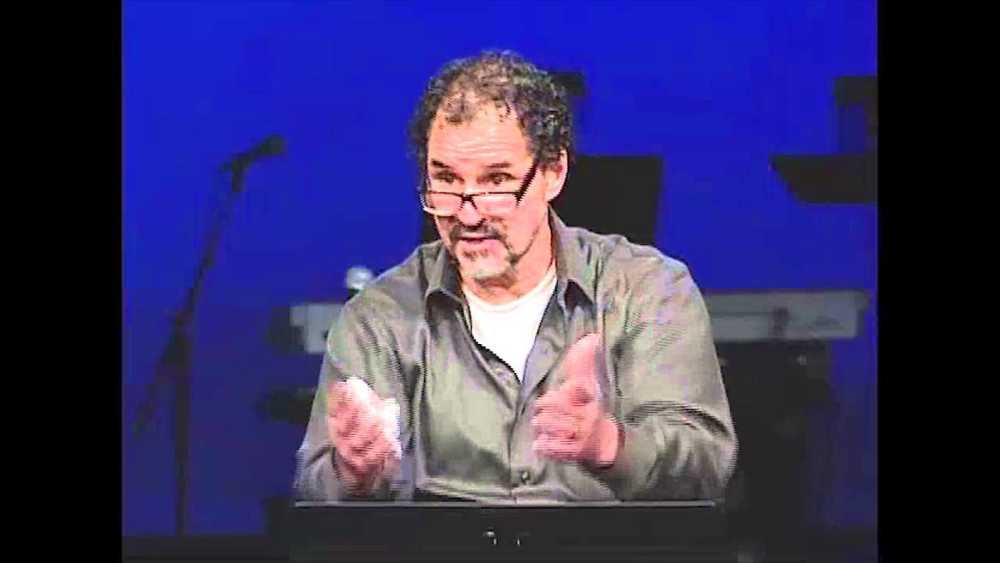We run our website the way we wished the whole internet worked: we provide high quality original content with no ads. We are funded solely by your direct support. Please consider supporting this project.

Homosexuality and the Church: Finding a “Third Way”
Here is a word I a shared this last weekend with Woodland Hills Church (where I’m senior pastor) in response to numerous questions I’ve received over the last several months. People have asked me why the leadership of WHC refuses to jump on the bandwagon of evangelical churches in the Twin Cities who rally their congregations to get out and vote “yes” for the marriage amendment currently on our ballot in Minnesota. Others have asked for clarification on WHC ‘s view of homosexuality, especially in light of the fact that we host a vibrant LGBT support group (called “Sacred Space”) that accepts people where they’re at, regardless of how they personally integrate their faith with their sexual orientation.
Many progressive, evangelical Christians like myself face something of a conundrum regarding these sorts of questions. On the one hand, we believe the Bible is God’s Word and we can’t with integrity deny that it teaches that sex outside the parameters of a monogamous, life-long, marriage covenant is sin, whether it is sex with a person of a different gender or sex with a person of the same gender. We find the arguments of those who try to argue that Rom.1:24-28-, I Cor. 6:9 and I Tim. 1:10 don’t apply to monogamous gay relationships simply aren’t very persuasive. On the other hand, we sense that something is “off” with the stance of the church throughout history, and the stance of most evangelical churches today, toward gay people.
For example, many of us wonder why it is that the church (rightly) embraces without question people who have been divorced and remarried – several times, in some cases –but adamantly excludes committed gay couples – couples who sometimes have a love for one another that puts the love of many straight couples to shame. What makes this question especially important is that the New Testament’s teaching that divorce and remarriage involves sin is much more emphatic and clear than its teaching that gay unions involve sin (see e.g. Mt. 5:32; 19:9). In fact, while Jesus taught on the sin of divorce and remarriage several times, he never even mentioned homosexuality.
My point is not that the church should exclude divorced and remarried people. While divorce and remarriage “misses the mark” of God’s ideal, which is the Bible’s definition of sin (harmartia), I believe that, by God’s grace, this is sometimes the best option for people. My point is rather that there seems to be an inconsistency on the part of the church on this matter, and many of us wonder why.
But this is hardly the only inconsistency of the church that some of us sense on this issue. Many of us also wonder why it is that the American church has always tended to minimize the sins that American Christians are typically guilty of while construing homosexuality out to be a “deal-breaker” sin. In fact, as I stated in my message this last weekend, the sins that typically characterize American Christians and that the American church tends to minimize happen to be sins that are denounced much more emphatically and much more frequently than homosexuality. For instance, there are thousands of verses in the Bible denouncing idolatry (which would include greed, gluttony and anything else that you go to for worth and security other than God). By contrast, there are three verses in the Old Testament and three verses in the New that mention same-gender sexual activity. Yet, people guilty of the former sins are embraced without question in our churches, while people guilty of the latter sins tend to be excluded. What’s wrong with this picture?
One of the most fascinating aspects of Jesus’ ministry is that when people tried to force him to weigh in on either-or issues, he always managed to point out a third alternative — the kingdom alternative. The “gay-issue” that many of us are wrestling with these days is usually presented as an either-or issue. Christians must either accept that homosexual activity is a sin that bars people from the kingdom and the church, which is where most evangelical churches stand today. Or they must accept that there’s absolutely nothing sinful about homosexual activity, at least in a covenantal context, and that it is therefore perfectly okay with God, which his where many liberal churches today have gone.
In this message, I try to follow the kingdom strategy of Jesus and point out a third alternative. If we collapse our Pharisaical sin-scales that rate some sins worse than others, if we obey Jesus’ teaching to consider our own sins as much worse than others (Mt. 7:1-3), and if we commit to “living in love, as Christ has loved us and gave his life for us” (Eph. 5:1-2), I believe a third way presents itself to us.
This message leaves unanswered a multitude of questions that could be raised regarding LGBT people and the church. The goal of this message is to simply point us in the direction of a third way of addressing these issues – a way that transcends the “either-or” dichotomy we’ve usually been presented with. It’s a way in which we confess that we are all sinners, saved by grace, and in the process of being transformed by the love of God. It’s a way in which we wrestle with all of our issues in love and from the inside of the faith rather than in judgment and as a precondition for being accepted into the faith.
Be blessed!
Category: Essays
Tags: Essay, Homosexuality, Love, Politics, Sexuality
Topics: Ethical, Cultural and Political Issues
Related Reading

When We Talk Politics
In this clip, Greg identifies a source of much of the conflict we experience in our conversations about politics, or other important topics. He does this by introducing the phrase, “your map is not the territory.” Your brain assembles and interprets the sensations you experience and forms maps of the world based upon those experiences.…

Taking the Lord’s Name in Vain
These things need to stop as it relates to our faith and our politics. Image by Katie Tegtmeyer. Sourced via Flickr.

Podcast: Will There Be Sex in Heaven?
Greg discusses the nature of union with Christ in this edgy episode on coitus. http://traffic.libsyn.com/askgregboyd/Episode_0257.mp3

Love and Free Will
God could have easily created a world in which nothing evil could ever happen. But this world would not have been capable of love. God could have preprogrammed agents to say loving things and to act in loving ways. He could even have preprogrammed these automatons to believe they were choosing to love. But these…

The Jesus Seminar and the Reliability of the Gospels
The Jesus Seminar The primary driving force behind the popular media’s present preoccupation with liberal views of Jesus has been the Jesus Seminar. This Seminar, first convened in 1985 by Robert Funk, is a gathering of 100 or so mostly liberal New Testament scholars who meet on a regular basis. They have determined, by a…

The Greatest Love Story Ever Told
This is the first week of Advent, the season where we anticipate the coming of Christ. It’s a time to hear and enter into the story of how Jesus came out of love to give his life for us. This grand love story of Christmas taps into a deep intuition we have about the centrality…
